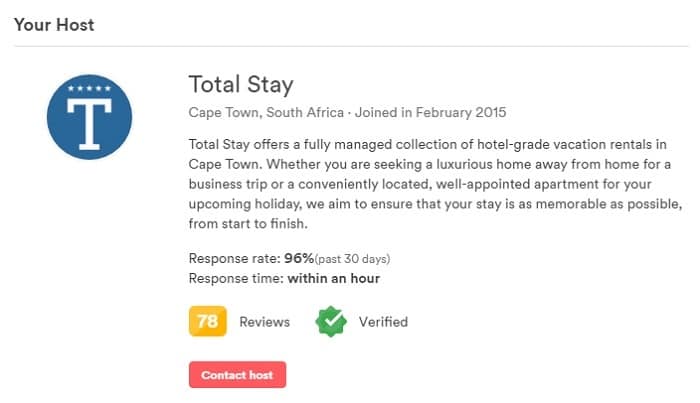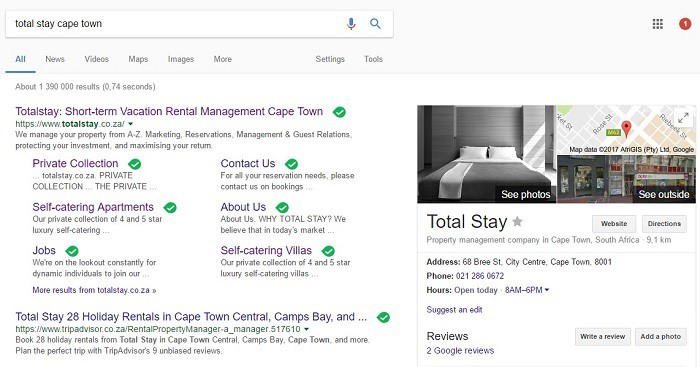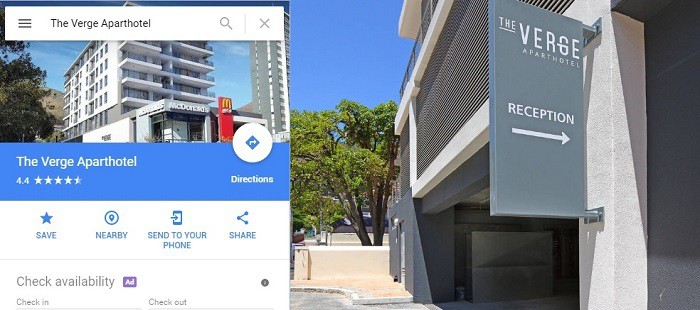As online bookings allow travellers to explore the world more easily than ever before, holiday rental scams are also on the rise. These scams are clever enough to trick many unsuspecting families and couples out of a small fortune. How a typical scam works is shockingly simple – listings are created either by faking or copying a genuine listing. Would-be guests are then asked to wire deposits (or even full booking amounts) or send money to a personal account. When arriving, guests quickly realise that no booking has been made, leaving them stranded in a foreign country without accommodation, stripped of a large sum of money.
Luckily, there a few ways that travellers can protect themselves against holiday rental scams.
Preventing Holiday Rental Scams
Holiday rental scams are a global concern. The City of London Police National Fraud Intelligence Bureau estimated that 1,569 cases of holiday booking fraud were reported in 2014. Over in the US, the American Hotel & Lodging Association did a study recently, finding that 6% of travelers who had booked accommodation online had booked through a fake website. On home shores here in SA meanwhile, Gumtree South Africa told Consumer Watch recently that the fake rentals were their biggest online scam.
Why are these scams so hard to spot?
For one reason, scammers know exactly how to ‘spoof’ accommodation listings and even entire websites so that they look almost exactly like the real thing. Fake reviews are used, along with fake photographs, or worse, genuine listings are copied to a fake website, with the only difference being that instead of making a booking with the real owners, you are booking with the scammer.
The first step in protecting yourself against holiday rental scams is to know what to look for when making any accommodation booking on the internet. Some tips to keep in mind include the following:
- Check the listing site joining date of host.
If you look at the example below, you will see that Totalstay has been listing holiday rentals on Airbnb since February 2015. Be very wary of hosts or rental agents who have loads of glowing reviews but have only been on the booking platform for a short time. Setting up an Airbnb, Booking.com or TripAdvisor account is easy. A genuine account will have a long history that is backed up by account verification, and consistent reviews over a long period.
- Don’t be fooled by fake reviews.
On the topic of reviews, these can be faked easily. On trusted booking platforms, it is a lot harder as these are given independently rather than uploaded by property owners. You will still need to approach these carefully however. A general rule of thumb is that consistent reviews given over a long period of time are more likely to be real than a number of overly positive reviews given in just a week. One way to check for real reviews is to do an online search for ‘property name reviews’ or ‘property name testimonials’. If there are any scams doing the rounds involving that property, you may be able to spot them. Likewise, you may be able to see if real reviews differ from those you are seeing on listing websites.
- Only book through trusted websites and booking agents.
Verified, trusted listing platforms such as Airbnb, Booking.com, HomeAway and TripAdvisor are almost always less likely to fall victim to scams. If you book through a booking agent, some things to look out for include strange characters in the website URL, email addresses that do not match the URL, mobile numbers instead of landline contact numbers and bad spelling or other small issues that could indicate a fake website. A genuine agency will be linked to tourism associations and other travel bodies – look for seals or certificates on the website. Do a Google search for the agent to see whether they have an online presence – Facebook, website, physical address, listings and other information should be easily found. If you cannot find anything on the agent beyond their website, it may be a red flag.
- Try and speak to a real person.
If you are having doubts or something does not seem right, see if you can contact the host directly on a landline. Mobile numbers can all too easily be faked while a landline is a lot easier to verify. The host or booking agency should be in the city that you are travelling to wherever possible. This will give you peace of mind in being able to speak to a real, live person who will be able to assist you throughout your stay. Once again, check details such as phone numbers, email addresses and social media accounts to make sure that you are speaking to the right person. If you are unable to reach the holiday rental owner or agency when contacting them, proceed with caution.
- Look beyond the listing photographs.
One of the many holiday rental scams involves the use of fake photos to lure travellers into parting with their hard-earned cash. Sometimes, the images are taken from the internet. Other times, photos are taken from 5-star listings, when the actual property barely warrants a single star. In other cases, photographs of genuine listings are copied along with the rest of the listing, to look like the real deal. One way that you can check to see if the property photographs reflect the rental is to search for the property name on Google Maps. You should be able to see that the property is the same on both listing and map. Doing a quick search of the property name or address will also reveal whether or not it really does look the way it is shown in the listing you are viewing.
- Be wary of wire transfer requests and other unusual payment requirements.
Listings on trusted sites are done via credit card – usually with a single payment done through a secure payment gateway. Sometimes, EFTs may be permitted, but you should never be requested to do a wire transfer, or to pay owners into a private bank account rather than a primary account. Check the deposit standard for the country you are visiting, too. If you are being asked for an unusually high deposit, it could be a scam. Likewise, if you are directed to a different website to make a payment, or you are given details that are different to the ones that are shown on the website, be very cautious. Do not ever make a payment if you have even the smallest of doubts.
- Trust your instincts.
Last, but certainly not least, the best bit of advice that we can give you is to trust your gut. Be cautious – be outright paranoid if you need to be. If something does not look right, don’t assume that you are being silly or over-reacting. It is better to call the booking agent or rental owner with countless questions, ask for additional photographs or seem like a pest than to take a chance when you have a bad feeling.
___________________________________________
Totalstay specialises in short term rental management, providing a full suite of services to holiday property owners in Cape Town. From marketing to day to day management, booking management and guest services, our mission is to provide guests with a world-class experience from start to finish. We also work with property owners wanting to take their investment to the next level. To learn more about what we offer, simply contact us today.





